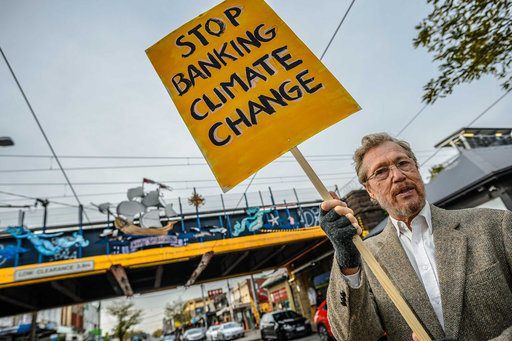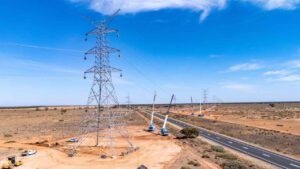
Today’s news headlines related to Commonwealth Bank will no doubt focus on the departure of its CEO Ian Narev, only days after he was given “full confidence,” by the Board – generally equivalent to the hanging judge reaching for his well-worn black hat.
But today also heralded the release of CommBank’s long-awaited climate change position statement, which is so devoid of useful content that it too should be sent straight to gallows.
Commonwealth Bank is barely even pretending to make an effort on climate change.
Unlike the bank’s peers in Australia and overseas that are taking concrete steps to avoid the most carbon intensive sectors, Commonwealth Bank clearly lacks either the interest or competency to fulfill its commitment to help hold global warming below two degrees.
The key points of the position statement are a commitment to make $15 billion available to “low carbon projects”, which, by the way, is less on a per annum basis than CBA’s Australian peers, and an aspirational target to reduce the average emissions intensity of the bank’s business lending portfolio.
‘Aspirational’ should generally point to some sense of ambition. Not so. Unfortunately this target could be achieved simply by lending to one solar farm.
According to Market Forces’ analysis, since Commbank made its 2015 pledge to uphold the Paris Climate Agreement, it has poured $6 billion dollars into the fossil fuel industry, more than four times the amount invested in renewable energy.
The new fossil fuel projects financed by Commonwealth Bank will produce enough CO2 over their lifetimes to cancel out Australia’s 2005-2030 emission reduction goal twice over. Undermining Australia’s efforts to reduce greenhouse gas emissions is hardly the behaviour of a major financial institution apparently on board with the goal of keeping global warming below two degrees.
Nothing in today’s statement alters this. In fact, the policy probably equates to less than the bank is already doing through its lending, which is quite a feat as the bar is so low.
Whilst the refusal to countenance funding Adani’s Carmichael project is a positive, the commitments keep the door wide open for Commonwealth Bank to continue lending to projects that expand the scale of the fossil fuel industry.
That in itself should be enough to conclude this flimsy document has no relationship with the goal of holding global warming to less than two degrees.
That’s why this week Market Forces will move a shareholder resolution that would embed climate change risk management into the heart of Commonwealth Bank.
The reality is that we can’t allow a situation to continue where Australia’s biggest company continues to finance a massive fossil fuel industry expansion while feigning interest in a safe climate future.
Julien Vincent is the Executive Director of environmental finance group, Market Forces.








